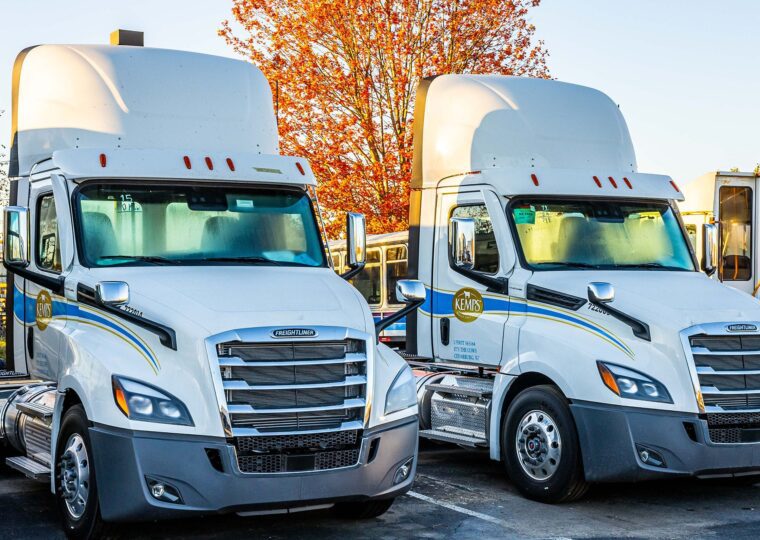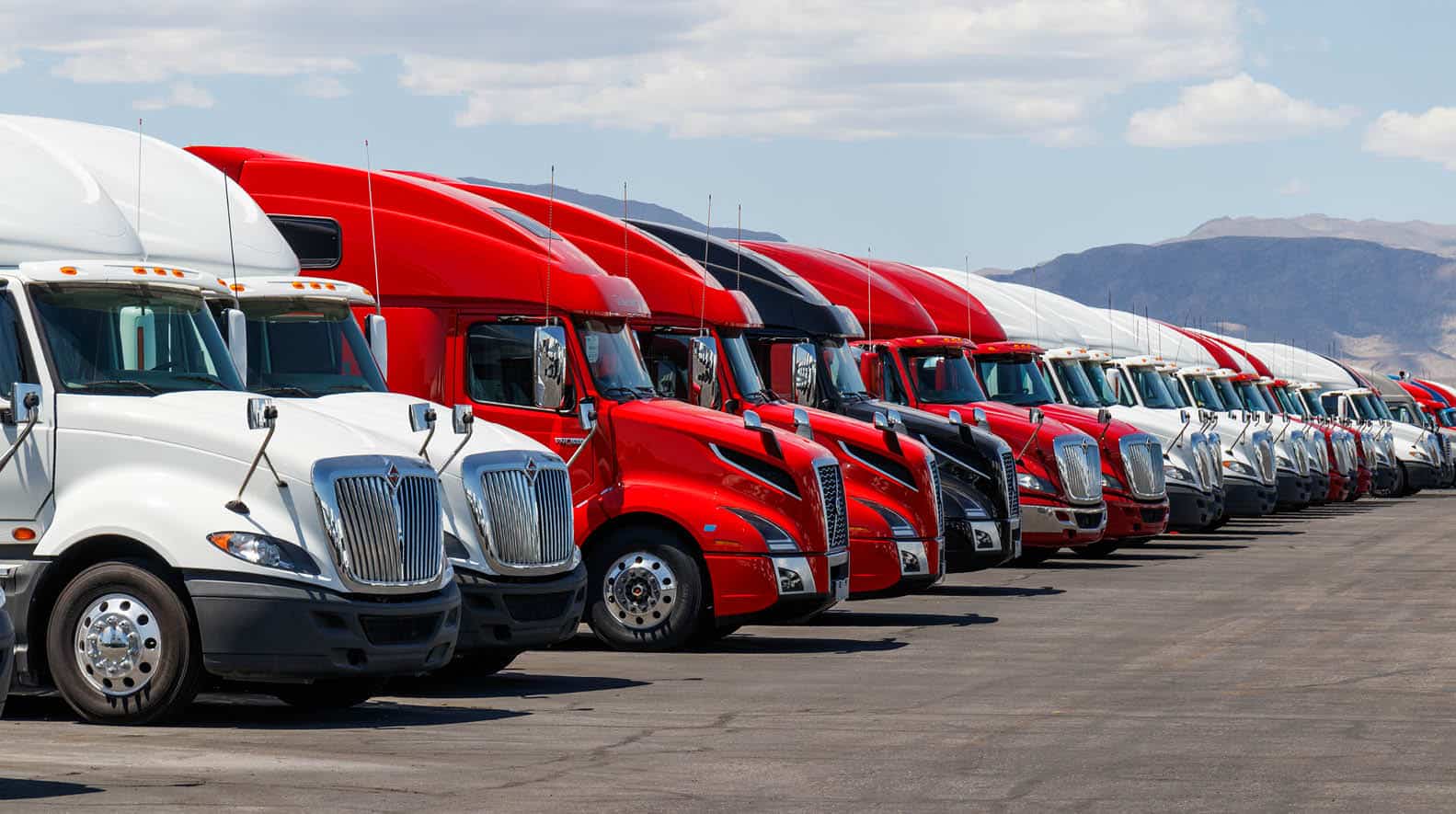When you’re in charge of fleet management, you’ve always got a lot on your plate. From coordinating vehicle repairs to communicating with drivers to scheduling shipments for customers, it can sometimes feel like you’re constantly putting out fires.
However, by understanding and using fleet metrics, you can gain control and be more proactive in making decisions that will maximize your fleet’s performance, productivity, and efficiency while saving you money in the long run.
What are fleet management metrics?
 Let’s begin by explaining what fleet management metrics actually are. In short, they’re measurements that help fleet managers know where they stand at any given time and can be used to help with goal setting and planning for the future. When determining what your metrics are, it can be helpful to ask yourself a few questions. What are you doing? How well are you doing it? How do you know how well you’re doing it? And how can you show others how well you’re doing it?
Let’s begin by explaining what fleet management metrics actually are. In short, they’re measurements that help fleet managers know where they stand at any given time and can be used to help with goal setting and planning for the future. When determining what your metrics are, it can be helpful to ask yourself a few questions. What are you doing? How well are you doing it? How do you know how well you’re doing it? And how can you show others how well you’re doing it?
These questions can be applied to just about every activity in fleet management and the answers can provide valuable guidance in helping you develop metrics to gauge performance and efficiency. Ultimately, they can also help you determine if your processes are working and can highlight areas that may be in need of improvement.
Why analyze fleet data?
It’s all well and good to gather data, but if you don’t analyze it, it’s not worth very much. The good news is that fleet managers have more data collection tools at their disposal than ever before. Thanks to sophisticated fleet management software, fleet managers can quickly and easily analyze how they’re doing on their Key Performance Indicators (KPIs) and use that information to make educated decisions.
Below, we break down a few key reasons why analyzing fleet data is well worth your while:
It can maximize your fleet’s efficiency
In the trucking and transportation industry, efficiency is key to your success. Fleet managers can use the data they collect from their software to identify areas where efficiencies can be improved. For example, fleet management software can track how drivers are performing on the road. Are they taking longer to unload a truck than they should? Are they driving in a way that puts unneeded wear and tear on the vehicle? By analyzing this type of data for patterns, fleet managers can develop new processes to make drivers more efficient while in turn increasing the life of the vehicles in their fleet.
It can reduce downtime
When a vehicle in your fleet breaks down and you end up missing a delivery, it can have an extremely negative impact on your brand’s reputation and can even cause you to lose customers. No one can afford that! Although even the most seasoned fleet managers can’t prevent every breakdown, they can use data to create a thorough fleet maintenance program that will help them identify when vehicles need preventative service. This can go a long way in reducing downtime and can ensure your vehicles are ready to go when you need them.
It can help manage costs
Let’s face it. Operating a fleet is an expensive endeavor on the best of days. However, if you don’t do your due diligence in terms of monitoring your expenses, you could end up spending money unnecessarily. This is another place where fleet management software comes in handy. By using it to track your expenses, you can drill down into your data to figure out how much money is coming in and how much is going out. You can also use that data to make modifications and create a budget to manage your costs.
Fleet metrics you’ll want to track
Listed below, in no particular order, are 10 of the most important fleet metrics to keep an eye on as a fleet manager. By watching these metrics, you’ll be able to tell whether your fleet is operating efficiently and productively and can spot processes and procedures that may need a little tweaking.
- Maintenance
 Commercial vehicles take a pounding every day and it can greatly shorten their lifespans. However, by creating a detailed fleet maintenance checklist and schedule and regularly tracking your metrics – especially your odometer readings – you can help head many potential problems off at the pass and keep your vehicles on the road for many miles to come.
Commercial vehicles take a pounding every day and it can greatly shorten their lifespans. However, by creating a detailed fleet maintenance checklist and schedule and regularly tracking your metrics – especially your odometer readings – you can help head many potential problems off at the pass and keep your vehicles on the road for many miles to come.
- Fuel costs
Fuel is one of the biggest expenses in running a fleet and even though costs continue to rise, there are ways to avoid spending more money on fuel than you should. Fleet software will calculate your cost-per-mile expenses for you and you can use those calculations to maximize fuel economy, predict future expenses and make better decisions.
- Customer service
You could have the newest and shiniest fleet on the road but if you don’t have customers, you’re never going to turn a profit. That’s why it’s so important to make sure you’re providing excellent customer service. Some service-related metrics you can track include how quickly you get back to a customer regarding an order, how long customers spend on hold when they call in and the amount of time it takes to resolve a problem.
You may also opt to send out a brief survey after interacting with a customer to find out how they rate your service. This can provide you with some valuable and unbiased guidance that you can use to improve the customer experience.
- Inventory
There’s nothing worse than needing a part to make a quick repair and realizing you don’t have it on hand. Fleet maintenance software can be a big help in monitoring your inventory and placing automatic orders when supplies are low, both of which can help reduce downtime.
Plus, you can use the order history generated by the software to make predictions about what to order and when. For example, certain parts may be more in demand in the winter and by analyzing your metrics, you’ll be able to stock up accordingly.
- Safety
Having a reputation as a company that values safety is important and having the stats to back up your claims is even better. Selecting fleet management software that has a GPS component can help you keep tabs on your drivers’ behavior and can indicate if they’re operating the vehicles in a safe or unsafe manner. Additionally, by simply monitoring your metrics regarding accidents, you can make changes to your procedures if you discover a common contributing factor.
- Vehicle use
Everyone wants to have enough vehicles in their fleet to ensure they can handle new business, but it’s very easy to end up with more trucks than you really need. By tracking the metrics on how often you’re using each vehicle, you can quickly notice patterns.
Maybe you’ll realize you have too many trucks that are sitting idle and you could opt to sell a few off. Or perhaps you have the opposite problem and need to add to your fleet. Either way, you can let your data be your guide.
- Inspections
 The larger your fleet gets, the more difficult it becomes to keep tabs on everything, especially when it comes to compliance. But if you’re not on the ball in this area, you could end up paying the price in the form of costly fines. By checking your Daily Vehicle Inspection Reports, you can be sure your fleet remains compliant and nip any potential problems in the bud through preventative maintenance.
The larger your fleet gets, the more difficult it becomes to keep tabs on everything, especially when it comes to compliance. But if you’re not on the ball in this area, you could end up paying the price in the form of costly fines. By checking your Daily Vehicle Inspection Reports, you can be sure your fleet remains compliant and nip any potential problems in the bud through preventative maintenance.
- Diagnostic trouble codes
Diagnostic trouble codes (DTCs) are an important clue that something is wrong with your vehicle. By incorporating a telematics device with your fleet management software, you can get the DTCs from your vehicle in real-time. Not only does this give you a head start on repairs, but when aggregated into a report, you can easily identify common diagnostic issues and make a plan on how to address them in the future.
- Length of time spent on repairs
Every minute your vehicle is off the road can mean a loss in much-needed revenue. That’s why it’s critical to find technicians who can get repairs done quickly and at reasonable rates. Tracking the metrics on the length of time it takes a service shop to complete a job – and whether they stick to their initial estimate – can help you determine whether or not to use them again.
- Vehicle life cycles
Figuring out the right time to replace a vehicle can be challenging for fleet managers. After all, buying a new vehicle can be extremely expensive, but there comes a point when the cost of repairing an older vehicle becomes prohibitive.
That’s where fleet metrics such as service history, odometer readings, and cost of ownership, in general, come into play. By studying these factors along with what the market is doing, fleet managers can make an informed decision about when they should hold on to a vehicle and when they should sell.
Get a customized fleet management program
 In the trucking and transportation industry, a successful tomorrow depends on having the right fleet management program in place today. That’s why you need the team of experts at Blaine Brothers on your side.
In the trucking and transportation industry, a successful tomorrow depends on having the right fleet management program in place today. That’s why you need the team of experts at Blaine Brothers on your side.
We’ve been helping companies across the upper midwest with their fleet management needs for more than 40 years and though many parts of the industry have changed, one thing remains the same – our commitment to our customers.
No matter how big or how small your company is, every member of the Blaine Brothers family is dedicated to providing outstanding, competitively priced, and customized services that are guaranteed to keep your fleet running at maximum productivity and efficiency. From our dedicated account owners to our safety and compliance team to our expert technicians, each one of us is here to help you succeed.
Contact us to find out how we can help you maximize your fleet’s potential and see why we’re one of the most trusted names in the business.

